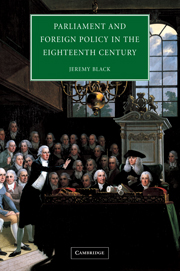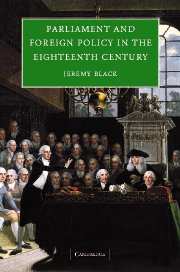British Foreign Policy in an Age of Revolutions, 1783–1793
In 1783 Britain had lost America and was unstable domestically. By 1793 she had regained her position as the leading global power. During the intervening years Britain went several times to the brink of war, and in 1793 Britain and France went beyond the brink. These successive crises are examined in an effort to throw light on the British state in an "Age of Revolutions." This is a study of British foreign policy in a crucial period of international political development. It provides a comprehensive account of the subject, and acts as a guide to the nature of the British state in the period and to international relations.
- A major scholarly study by one of Britain's best-known and most prolific young historians
- Offers new material on the impact of the French Revolution and on the nature of British imperialism
- The first book to take this important period as a unit and to give it a unified and coherent treatment
Reviews & endorsements
"This is an important and impressive book, in which a mastery of detail is allied to an appreciation of longer-term issues. It is diplomatic history written with a thorough knowledge of sources, a regard for the importance of narrative in establishing the truth of events, and a capacity to balance continuity and discontinuity in the interpretation of the past." John Derry, Times Literary Supplement
"The present volume by the leading scholar of British foreign policy is therefore timely and welcome. Reflecting characteristically wide reading in both archival and secondary sources, Dr. Black's book has all the virtues of the 'new diplomatic history': it is thorough, vigorously written, incisive in judgement and ably depicts the key factors behind policy formulation in a judicious blend of narrative and analysis that avoids the limitations of a purely chronological approach....[T]his is a first-rate study and is to be highly recommended to all students in the field." K.W. Schweizer, Canadian Journal of History
"This is the work of an historian at the height of his powers. Built on exhaustive archival research and a career dedicated to the study of eighteenth-century diplomatic history, Jeremy Black's book offers carefully-reasoned insights into an often misunderstood period in British diplomatic history....[A] superb work, one that scholars in the field will consult for many years to come." John K. Severn, Albion
"A measured and thoughtful study...Jeremy Black has produced his most impressive work since his early studies of Walpole's foreign policy." James J. Sack, The Historian
Product details
May 1994Paperback
9780521466844
574 pages
229 × 152 × 30 mm
0.76kg
9 maps
Available
Table of Contents
- Introduction
- 1. The aftermath of war
- 2. Years of isolation, 1783–6
- 3. Trade, France and the Dutch, 1786–7
- 4. To the banks of the Danube, 1787–90
- 5. To the shore of the Pacific
- 6. The failure of Britain's continental policy, 1780–91
- 7. Anglo-French relations from the fall of the Bastille to the Declaration of Pillnitz, 1789–91
- 8. Neutrality, 1791–2
- 9. The coming of war, 1792–3
- 10. The domestic context of foreign policy
- 11. The international system.










.jpg)

